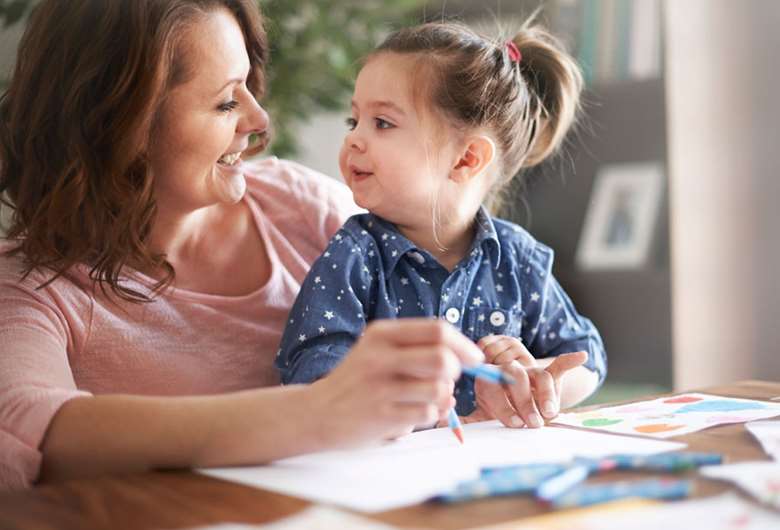Teaching assistants boost children's speaking abilities
Friday, February 26, 2016
Teaching assistants working with small groups of young children struggling to talk have successfully improved their language skills by several months.

A study published today by the Education Endowment Foundation has found that intensive support from teaching assistants with small groups of reception and nursery class children boosted children’s vocabulary, listening, narrative and conversational skills.
The foundation argues that this research, and that of five other successful interventions it has funded using teaching assistants, shows how schools should use them best in the classroom to have a positive impact on learning, particularly for disadvantaged children.
There are around 240,000 teaching assistants working in schools in the UK and 10 per cent of the education budget is spent on employing them each year.
Previous research has show that the ways teaching assistants are used, for example as substitute teachers, does not help children's learning.
Chief executive of the EEF Sir Kevan Collins said that there was now ‘compelling evidence’ to ensure that the £4 billion a year spent on teaching assistants should is used to improve results.
The findings are based on an independent evaluation of a trial of the Nuffield Early Language Intervention, which was developed by academics from the University of York with funding from the Nuffield Foundation.
The communication charity I CAN trained teaching assistant and nursery staff to deliver the programme.
Teaching assistants were trained over three days to deliver detailed lesson plans so that they could lead short, structured sessions on everyday topics, such as ‘time’ and ‘what we wear’.
The trial, which was funded by the EEF, was evaluated by the Institute for Fiscal Studies and NatCen Social Research.
A group of 350 children identified as having low language skills at 34 schools and nurseries took part.
Children were randomly allocated to either a 30-week programme that started during the final term of nursery and continued during the first two terms of Reception, a shorter 20-week programme that ran during the first two terms of starting primary school, or no change to their provision.
The results showed that the 30-week programme boosted children’s language and communication skills by up to four months and in the the 20-week programme children made around two months’ extra progress.
Staff reported that factors that contributed to the programme’s success included the small group format, the activities covered and the focus on narrative and vocabulary work.
‘Participating children were also perceived to be more confident, outgoing and conversational after taking part,’ the report said.
Sir Kevan Collins, chief executive of the Education Endowment Foundation, said, ‘Teaching assistants have been much maligned in recent years and many schools have scaled back on their employment to cut costs. But today’s results prove that when they’re used to deliver small-group interventions, they can have a great impact on pupils’ attainment.
‘With so many teaching assistants employed across the country, schools now have compelling evidence to make sure they’re using their own teaching assistants in ways that really improve results.’




